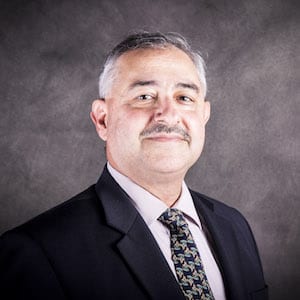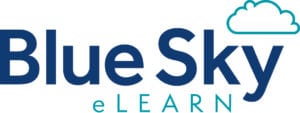Forming partnerships with higher education institutions is something all organizations in the lifelong learning business should consider. Such relationships have advantages for learners already in the workforce as well as for those preparing to enter it.
Dr. William Clements, Vice President and Dean of the College of Graduate and Continuing Studies at Norwich University has nearly four decades of experience in the field of higher education and has a strong grasp of what’s necessary to meet the needs of learners in this rapidly changing world.
In this episode of the Leading Learning podcast, Jeff talks with Bill about what Norwich is doing to meet the needs of learners, how technology has impacted the continuing education and learning landscape, as well as what they’re doing related to the creation of partnerships with professional organizations.
To tune in, just click below. To make sure you catch all of the future episodes, be sure to subscribe by RSS or on iTunes. And, if you like the podcast, be sure to give it a tweet!
Listen to the Show
Read the Show Notes
[00:18] – Thank you to Blue Sky eLearn, sponsor of the Leading Learning podcast for the first quarter of 2018. Blue Sky is the maker of the Path learning management system, an award-winning, cloud-based learning solution that empowers your organization to maximize its message. Blue Sky also provides a range of virtual event and instructional services to help you maximize your content and create deeper engagement with your audience. To find out more about Blue Sky eLearn and everything it offers, visit https://www.blueskyelearn.com.
[01:04] – Highlighted Resource of the Week – excerpts from Robot-Proof: Higher Education in the Age of Artificial Intelligence by Joseph Aoun (a book that Bill Clements mentions during this interview) – Aoun is the president of Northeastern University and he offers some great perspectives and insights on the role of education in a world where artificial intelligence and robotics are playing a quickly increasing role.
[01:44] – A preview of what will be covered in this podcast where Jeff interviews Dr. William Clements, Vice President and Dean of the College of Graduate and Continuing Studies at Norwich University. Jeff notes that he became familiar with Bill and Norwich through his role as board member of NIGP: The Institute for Public Procurement.
[03:05] – Introduction to Bill.
[03:42] – An overview and background on Norwich/Norwich Online.
[08:06] – A discussion about how Norwich is the birthplace of ROTC and that Norwich has been doing online learning for 20 years and whether those things are connected. Bill says what’s really prompted the shift towards more distance education has been the technology. If you look at the growth in higher ed from about 2000-present, he points out there have been some declines in the last few years but a greater proportion of those students are now adult students—in large part this population has been enabled by the technology and the access. They are looking at how to really leverage that in a more productive way to produce much better education outcomes using data analytics to understand learning and the effectiveness of outcomes. Bill talks about the increasing discussion around the concept of competency-based education, something that can be achieved quicker. He adds the reason the military benefits significantly from distance education is because of the deployment of forces around the globe and also because the military has been more conscious to break out clear paths for progression in fields.
[11:42] – In your experience, how has the competency-based education approach factored into continuing education? Bill points out that you won’t hear people using the word, “competency-based education” which he doesn’t think has diffused into their vocabulary in the way people are talking about college. Where he sees it emerging is a greater recognition that learning is taking place in a variety of environments. He says education institutions are obviously very important, but not exclusively so. In corporate settings and in the military learners can earn credit for the education/training programs they’ve taken—and he says we see more of that emerging as the world is becoming more complex. The exciting part about the future is coupling the learning accomplishments that have occurred as “extra institutional learning” with institutional learning to achieve educational objectives.
[14:38] – Regarding the role of data, how are you looking at it in terms of outcome? Do you have specific initiatives underway where you’re trying to make better use of data for your planning/programming? Bill says they absolutely do and this reflects instructional design or digital learning 1.0, 2.0 and they are making the shift into 3.0. He describes 1.0 as what we conceive of as traditionally delivered education. 2.0 was enabled when we moved into the Web and put learning into digital form. The problem is that in many cases, particularly in the earlier stages, is they were a replication of what we did in the classroom. Learning 3.0 is going beyond this and is focused on the science and effectiveness of learning, so we need to look at how to collect and capture data through analytics and identify high impact practices. Bill talks about how the major contribution of MOOC’s has been the learning science that has come from them and the tremendous amount of data.
[19:38] – How have you seen the field evolve in recent years? In particular, how has continuing education changed from your perspective? Bill talks about how he’s been in involved in higher ed almost 40 years and early in his career, he felt the more traditional concept of lifelong learning was just a bit shallow and not broad enough. He views learning as a process that occurs throughout our lifetime. One of the bigger changes he sees that’s occurred over the past several decades is that getting the college degree alone increasingly isn’t enough of a proxy about your capabilities of performance. They are looking at how to provide other companion credentials that are embedded in a student’s experience while they are earning a degree (i.e. coding, a cyber area, etc.). In Robot-Proof: Higher Education in the Age of Artificial Intelligence, Joseph Aoun talks about the new competencies of where we need to be in education. We are seeing a shift and paying a lot more attention to outcomes and performance. Also, the world that we’re in is changing so rapidly that it’s no longer the case that you can go to college, get your degree, and have a long-term career without having to go back and do a lot of education. Bill sees continuing ed more as professional development education to stay current in your field. Over the past year, Bill shares that he’s consciously tried to change his vocabulary when talking to his team to not refer only to students but to learners—students are a subset of learners. He stresses the need to look at what we’re doing to help people with their skill development/technical development and to remain “robot proof” since many major professions are projected to go away because of artificial intelligence. In his view, the future of the university is coupling learning with industry to be relevant—we need to find ways to make education affordable, relevant, and flexible and that’s a key set of values driving where we’re going.
[25:48] – How are you collaborating with professional organizations/trade associations/corporations (like, for example, NIGP)? How do you partner with others and how does that fit into this whole vision of lifelong learning that you’ve been articulating? Bill thinks this is where higher education is going and that some are getting there faster than others—for example, Northeastern University and their co-op program. The principles of partnering and providing education – and in a highly experiential setting – is really key. What he’d like to see with their students is what credentials are available in addition to their education that they could work on. From the association/partner side where good education is being delivered, he asks, are there members that have a need or desire to increase their education level and how can they leverage the certifications/credentials they’ve earned and have that be recognized in an educational program? He says it’s really working in both directions to provide a relevant experience to produce the outcomes in a highly educated workforce and to help folks be adaptive.
[29:32] – A discussion about how the partnership works using the case study of NIGP. Bill talks about how the competency piece plays into this, which is about recognizing achieved learning and helping reduce the cost of the education through that process. They are also working on programs to build in competencies for some certifications. He adds you need to be cognizant about preparing students to be situated to enter into a credentialing program and those that have credentials, need to be able to complete their education in a cost-effective way through clear pathways—something he emphasizes is key for all students. Jeff notes that in the recent Tagoras trends and predictions Webinar (get access here), they identified “career pathing” or “visioning” which was likely influenced by what he saw going on with NIGP and Norwich.
[35:01] – How do you go about finding partners or how do partners go about finding you? Bill says they’ve started looking at their academic programs to develop more continuing education activities and programs to see what really fits with what they have and where the areas are that they can engage with industry much more strongly. They are looking to see where those pathways, connections, and solid partners are to identify leaders in the field that are providing certification. They’ve always worked closely with the military and have been approached by outside entities where they can be consulted to help articulate pathways and with workforce development. He adds he is happy to entertain any and all contacts for those that are interested—find out more here.
[38:02] – Regarding your own lifelong learning, what is one of the most powerful learning experiences you’ve been involved in, as an adult, since finishing your formal education? Bill shares his experience related to coming to the university as a new assistant professor in the 80’s and how he embraced – and continues to embrace – new technology to improve education. He stresses that it’s a constantly evolving endeavor to keep up.
[42:05] – How to learn more about Norwich/Norwich Online and partnerships:
[43:21] – Wrap Up
If you are getting value from the Leading Learning podcast, be sure to subscribe by RSS or on iTunes. We’d also appreciate if you give us a rating on iTunes by going to https://www.leadinglearning.com/itunes.
We’d also be grateful if you would take a minute to visit our sponsor for this quarter, Blue Sky eLearn. In addition to finding out about their services, you will also find a variety of great resources that they offer for free.
Also, consider telling others about the podcast. Go to https://www.leadinglearning.com/share to share information about the podcast via Twitter, or send out a message on another channel of your choosing with a link to https://www.leadinglearning.com/podcast.
[45:20] – Sign Off




Leave a Reply